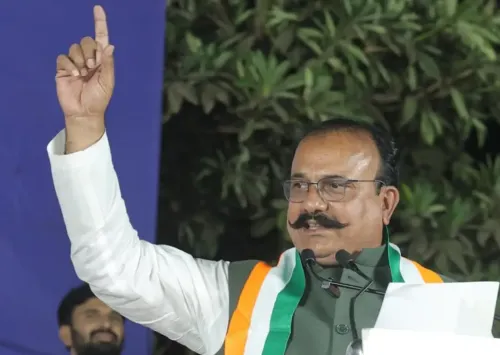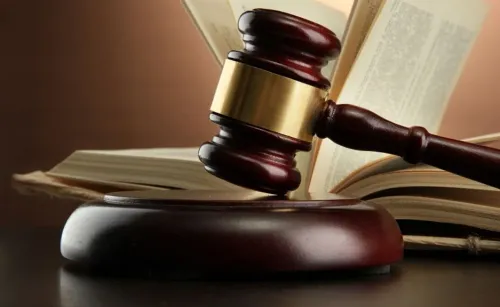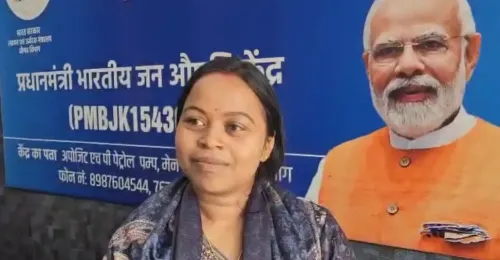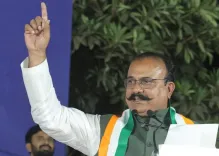Gujarat Chief Minister Launches Two-Day Homoeopathy Summit, Emphasizes Importance in Primary Healthcare
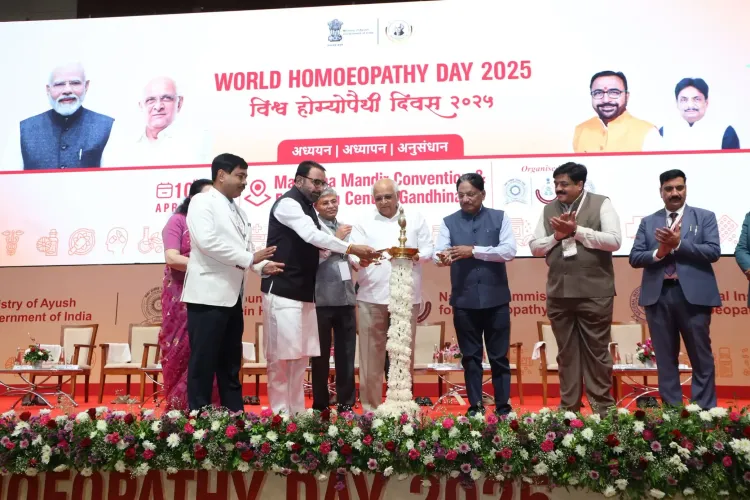
Synopsis
Key Takeaways
- Homoeopathy's role in primary healthcare is emphasized.
- The conference serves as a platform for knowledge sharing.
- Integration of traditional medicine into public health is a key focus.
- Jamnagar's WHO Centre is highlighted as a global hub.
- Increased commitment to expand AYUSH infrastructure.
Gandhinagar, April 10 (NationPress) The Chief Minister of Gujarat, Bhupendra Patel, officially opened a two-day national conference on homoeopathy in Gandhinagar to commemorate World Homoeopathy Day, emphasizing the increasing global significance of traditional medicine within holistic healthcare frameworks.
The gathering, orchestrated by the Ministry of AYUSH and the National Homoeopathy Council, attracted practitioners, researchers, and students of homoeopathy from all over India.
The summit took place at Mahatma Mandir and included a specialized homoeopathy exhibition, featuring notable figures such as Union Minister of State for AYUSH Prataprao Jadhav and Gujarat Health Minister Rushikesh Patel.
The dignitaries praised the role of homoeopathy in the Indian healthcare system and explored methods to further incorporate traditional medicine within mainstream health services.
During his address, Bhupendra Patel remarked: “Preventive and primary healthcare are essential to a robust healthcare system. The growing inclination towards holistic methods has rekindled interest and confidence in traditional medical practices like homoeopathy.”
He noted that under the leadership of Prime Minister Narendra Modi, the National AYUSH Mission has effectively woven homoeopathy into public hospitals and wellness centers nationwide.
Patel also highlighted the WHO Global Centre for Traditional Medicine in Jamnagar as a significant milestone for India in this domain.
“This center will act as a global focal point for research, innovation, and partnership in traditional medicine, reinforcing India’s contribution to worldwide healthcare solutions,” he added.
Union Minister Prataprao Jadhav expressed pride in Gujarat's role as host of the world's largest homoeopathy convention, showcasing the state's prominence in the healthcare arena.
He reiterated the government's dedication to enhancing AYUSH infrastructure and advocating for evidence-based traditional practices.
Health Minister Rushikesh Patel shared similar views, recognizing homoeopathy’s considerable contributions within the broader framework of Indian traditional medicine.
“The fusion of scientific methodology and natural healing renders homoeopathy an essential component of Indian healthcare,” he stated.
This conference aims to serve as a venue for knowledge exchange, policy debates, and advancements in the homoeopathy sector.
Over the subsequent two days, attendees will participate in technical sessions, exhibitions, and panel discussions concentrating on the integration of homoeopathy into national health missions, clinical research, education, and public health delivery.
--INAS
janvi/dan


